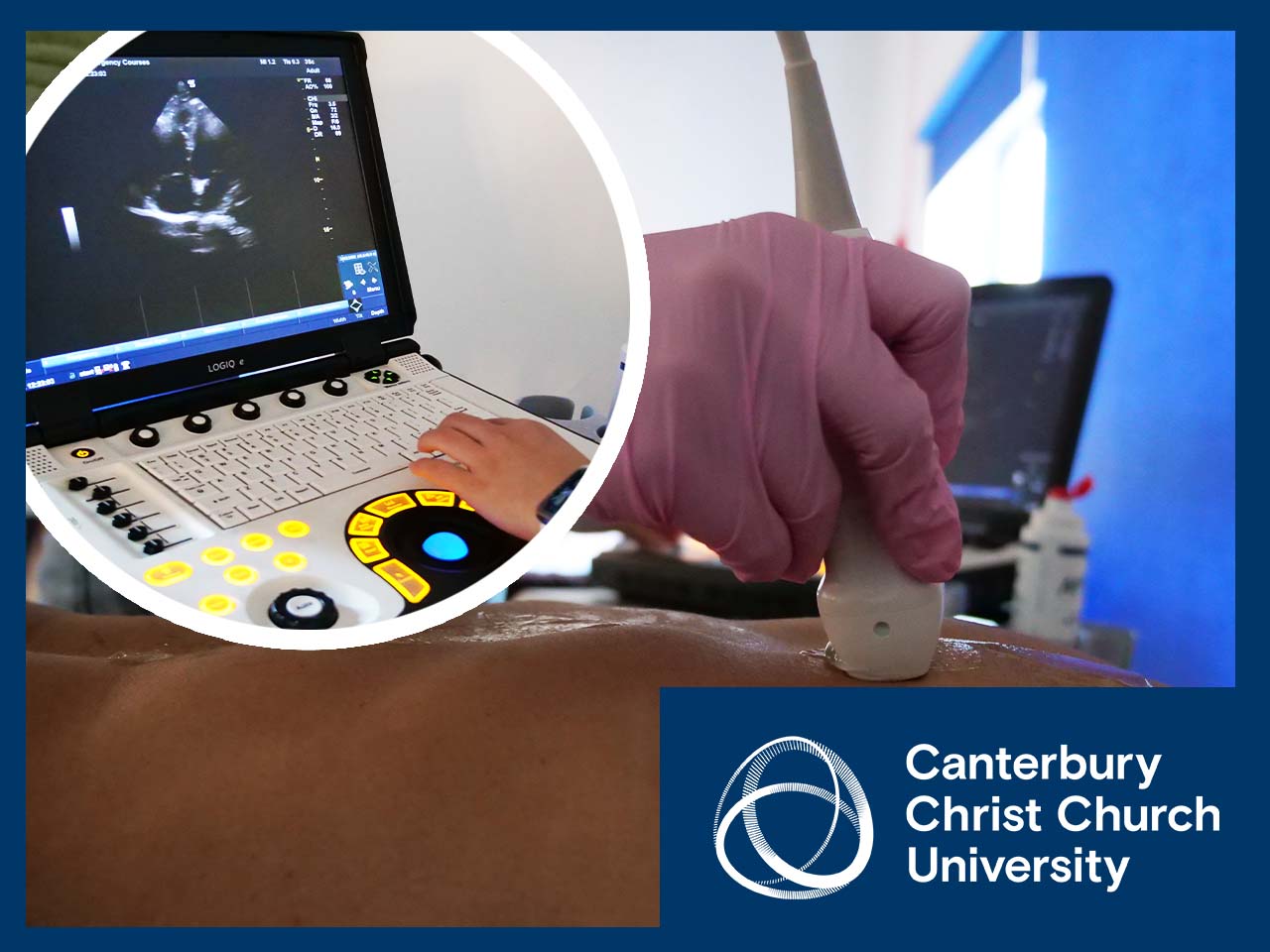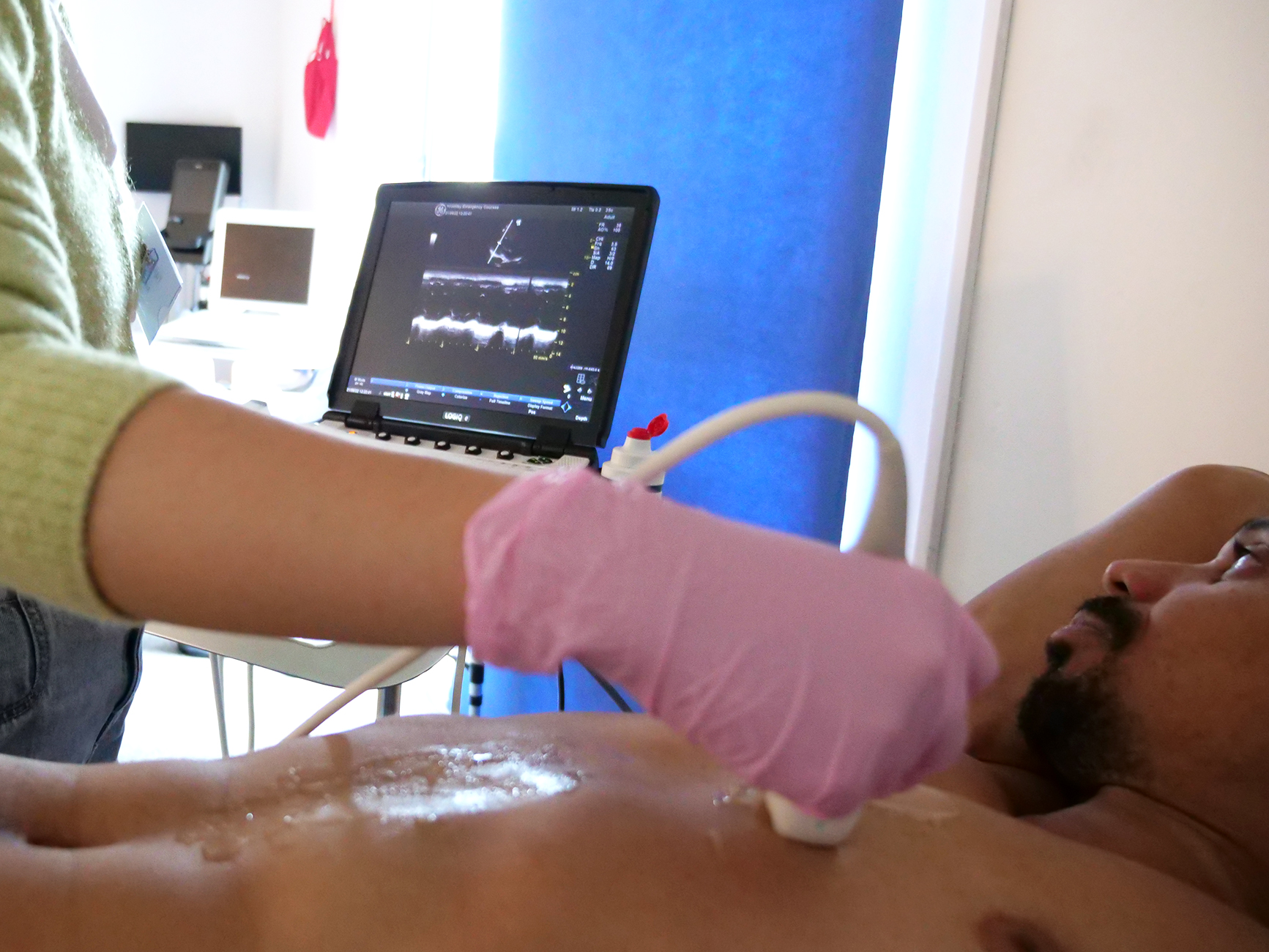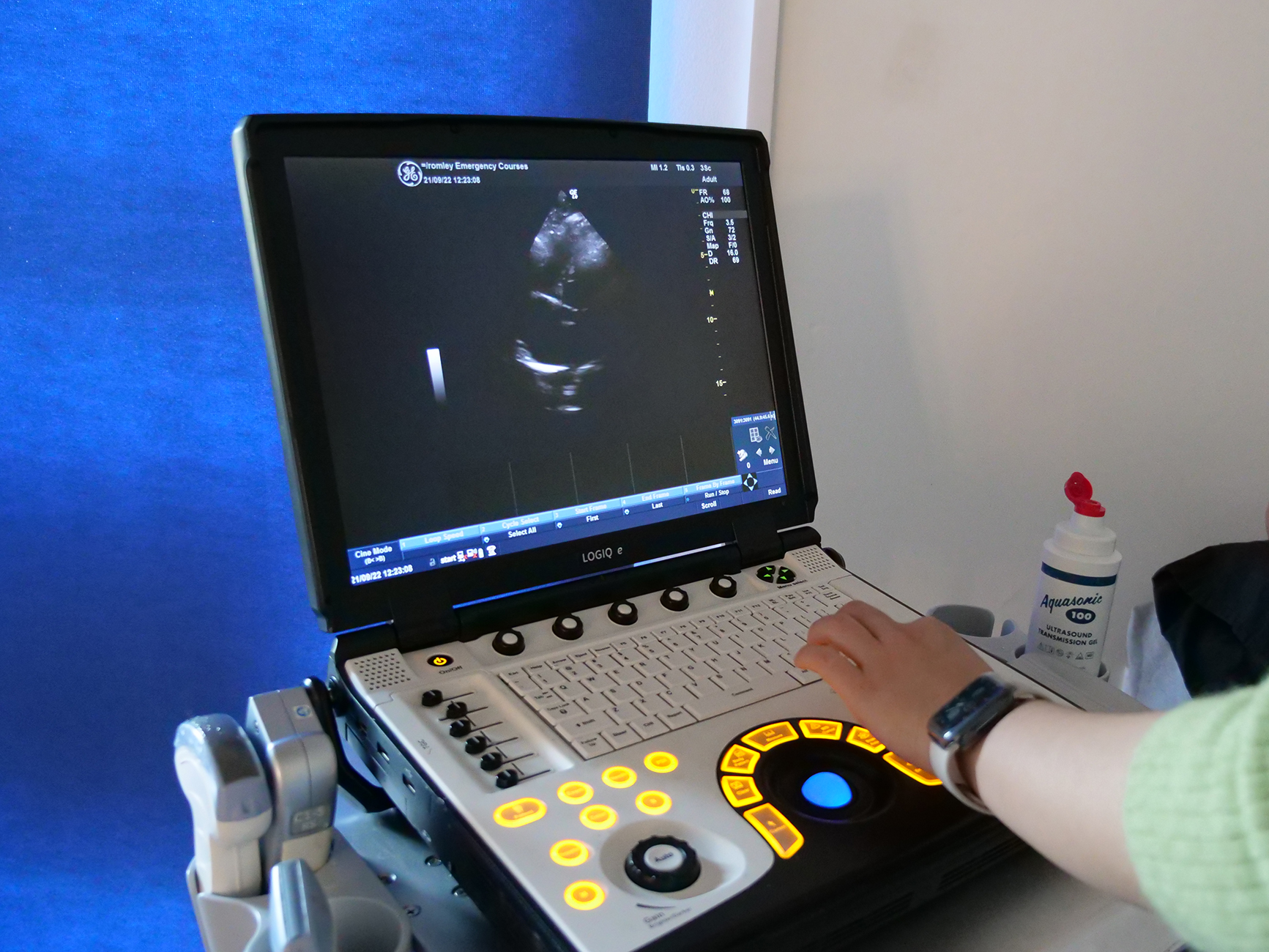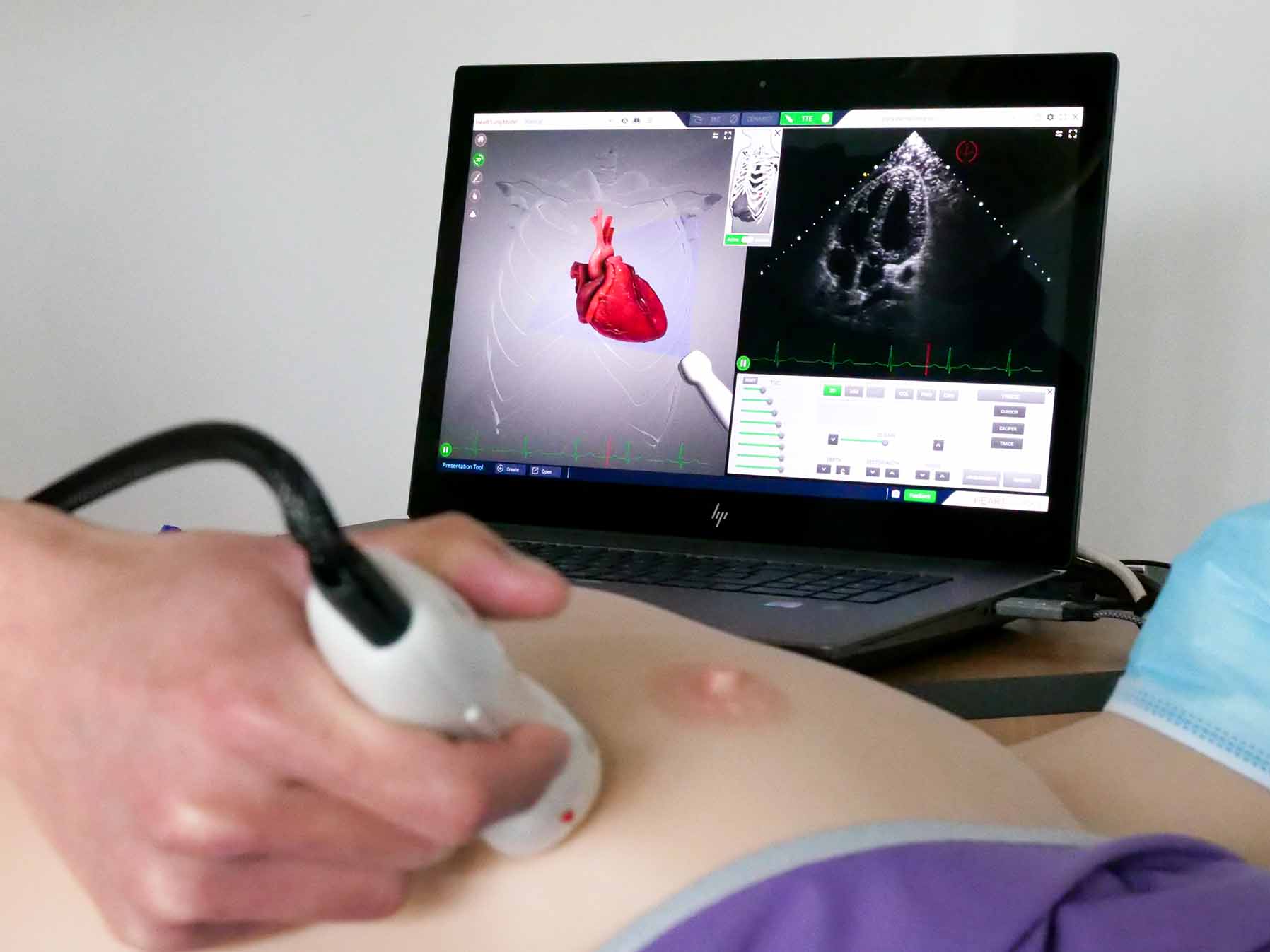Fundamental Cardiac Point-Of-Care Ultrasound Micro-Credential (PgCert Module)
This 10-week cardiac ultrasound course, offered in partnership with Canterbury Christ Church University, is designed for clinicians who use—or wish to use—cardiac PoCUS in their clinical practice. It is particularly suited for those who want to acquire a firm foundation and confidence in obtaining standard cardiac ultrasound views. The course also covers the application of these views in patients in cardiac arrest, with a suspected pulmonary embolism, pericardial tamponade and in fluid administration decisions in shock.
This micro-credential can be taken as a standalone course or as part of our PgCert in PoCUS programme. Click here to learn more about the other micro-credentials we offer.
Next Dates: 22nd January – 26th March 2026
Fee: £600

21 years of teaching EM and PoCUS courses
19 000 clinicians have taken our courses
4.9 out of 5 is our average Google review score
What is a micro-credential?
A micro-credential is a short, specific course of study, with an assessment which earns credits. The Credit Accumulation and Transfer Scheme is a national UK university scheme to allow credits to be earned and accumulated. For example, a typical postgraduate diploma is 120 credits, a typical PgCert is 60 credits. Each of our micro-credentials earns 10 credits, with each credit representing the notional equivalent of 10 hours of study.
What is the commitment?
Each micro-credential requires 100 hours of notional study, most of which will be self-directed learning. However, for micro-credentials with a practical component, you must also complete a minimum of 21 hours of in-person, hands-on training at our London-based training centre if this is your first micro-credential with us, or 15 hours if you have already attended one of our other micro-credentials. You can enrol on up to two micro-credentials per term.
What are the entry requirements?
- Professional Registration: Registered with the General Medical Council (GMC), Health & Care Professions Council (HCPC), or Nursing & Midwifery Council (NMC).
- Educational Background: A relevant first degree, such as MB BS (or equivalent), or a bachelor’s degree, ideally at first-class or 2:1 level.
- Clinical Experience: Current employment in an appropriate role within the NHS or a UK-based private healthcare provider, with evidence of basic ultrasound experience.



What does the Fundamental Cardiac PoCUS course cover?
- Medico-legal aspects and patient safety
- Familiarity with a wide range of ultrasound equipment
- Confident use of ultrasound equipment
- Indications for cardiac PoCUS ultrasound
- Obtaining standard views (parasternal long-axis, para-sternal short axis, apical four chamber, apical five chamber and subcostal views)
- Introduction to spectral and colour flow Doppler
- Recognising normal and abnormal appearances within the pathologies covered and making PoCUS decisions
- Integrating ultrasound findings into clinical decision-making
- Report writing
- Familiarity with national and international guidelines
- The value and role of departmental protocols
How is the course taught?
You will have access to video materials covering the theoretical content. Didactic teaching will be combined with practical face-to-face sessions, where you will use a range of ultrasound systems to develop scanning skills on normal volunteers. Additionally, simulators, including HeartWorks®, will be used to practise imaging and identifying various abnormalities.
You must complete the required number of in-person practical training hours for this module—21 hours if it’s your first, or 15 hours if you’ve previously completed another module—before your assessment day.
How will your skills of cardiac ultrasound be assessed?
The award of the micro-credential will require successful completion of both written and practical assessments. The knowledge content will be assessed through a multiple-choice examination using still images where appropriate. Practical skills will be assessed through obtaining optimal images on normal subjects and through obtaining optimal images of simulated pathology on simulators.
Schedule
The in-person training sessions will run from 9:30 am to 4:30 pm. Attendance on the first and last days (assessment day) is mandatory. Attendance on the second day is highly recommended to ensure you gain the foundational knowledge essential for further training. The remaining days are flexible. However, you must complete at least 21 hours of in-person training at our London-based centre for your first module, and 15 hours for each subsequent module, before the assessment day.
Spring Term 2026 Schedule:
22nd–23rd January 2026 – core training days (22nd January is mandatory if this is your first module or micro-credential)
5th–6th February 2026 – training days
26th–27th February 2026 – training days
12th–13th March 2026 – training days
26th March 2026 – assessment day (mandatory to attend)
An additional training day may be added if needed.
What doctors say about our PgCert and micro-credentials programme
Subscribe to our weekly newsletter for updates on Emergency Medicine and Ultrasound courses
*By proceeding you give your consent to be contacted via email with updates on courses and events by Bromley Emergency Courses. You may unsubscribe from these communications at any time. We will never share your details with 3rd parties and will only use your email to send you information about our upcoming courses and other offers.

